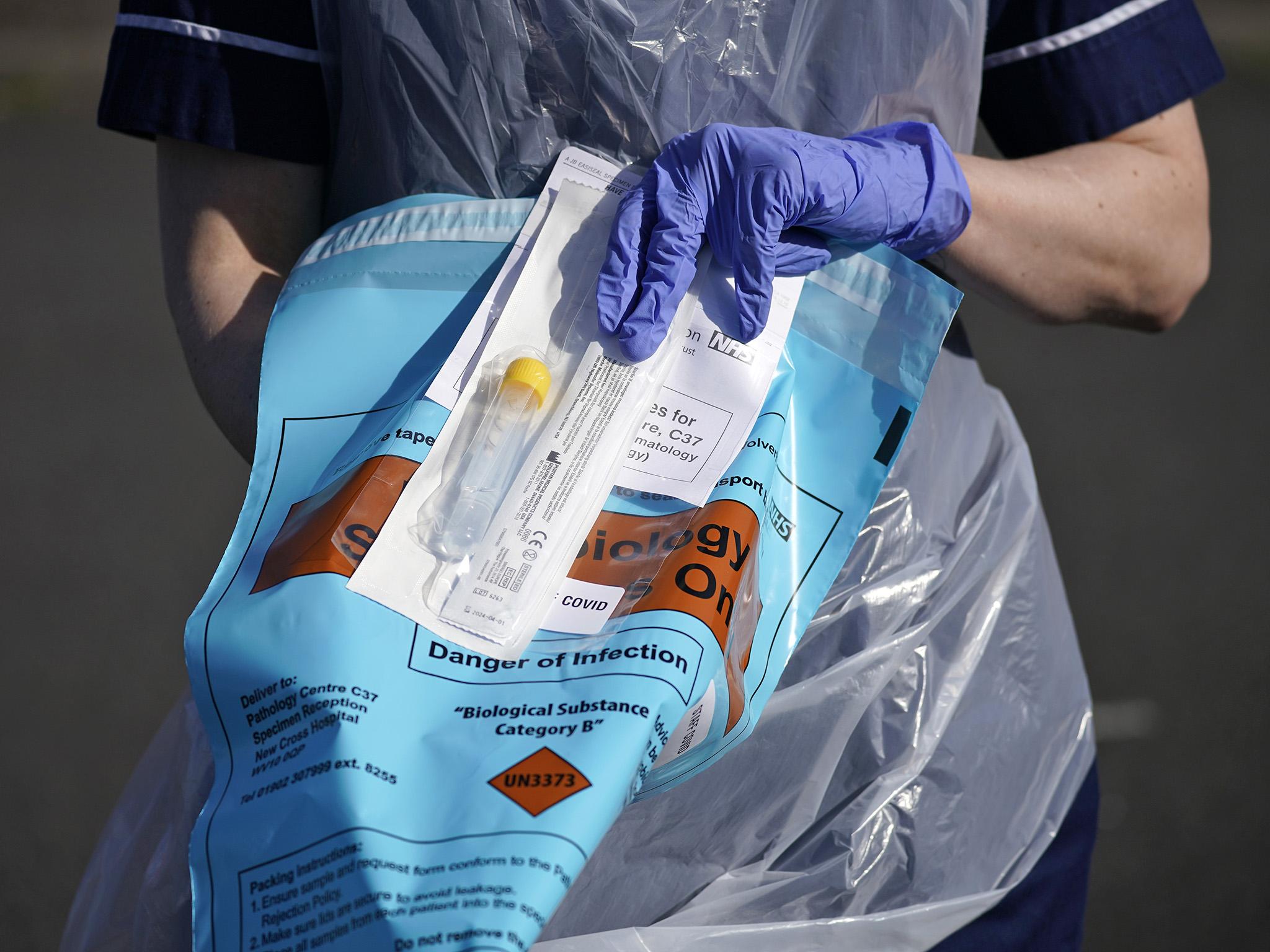A third of NHS staff in two hospital units were infected with coronavirus without showing symptoms, study finds
Almost 60 per cent of staff infected with coronavirus continued to work and commute

A new study has highlighted the number of NHS staff who can be infected with coronavirus but be completely unaware they are a risk to their colleagues and patients.
The research by doctors at University College London Hospitals (UCLH) found a third of staff working in two maternity departments at UCLH and St George’s Hospital tested positive for the virus but had no symptoms.
Overall, one in six staff who had not previously been diagnosed with the virus were tested for Covid-19 antibodies and were found to be positive for infection.
Of those who had the antibodies, almost 60 per cent had neither a cough or fever which meant they continued to work and to commute to hospital, potentially spreading the virus.
Prof Keith Neal, emeritus professor of epidemiology of infectious diseases at the University of Nottingham, who was not involved in the research, said: “Asymptomatic healthcare workers with Covid-19 pose a risk of spreading the virus depending on the personal protective equipment in use. We know many cases were acquired in hospital.
“Regular testing of healthcare workers is clearly warranted.”
The study comes as The Independent can reveal that concerns over the numbers of NHS staff who have died as a result of a coronavirus infection have prompted a review of deaths by medical examiners to determine if the virus was caught as a result of their work.
The study included 200 members of staff encompassing 40 anaesthetists, more than 100 midwives and 52 obstetricians who were tested for Covid-19 antibodies.
A total of 29 tested positive, a similar prevalence to that seen in the general London population of around 14.5 per cent. The highest positivity rate was found in midwives at 16 per cent.
Ten staff members (35 per cent) were completely asymptomatic, 20 per cent reported a fever and 35 per cent reported a cough.
The loss of taste and smell was a common symptom reported by 52 per cent of all those testing positive for antibodies.
More than half of those who tested positive had not met the criteria for self-isolation at any point, and therefore did not self-isolate and continued to provide patient care in the hospitals.
The risk of the virus spreading within hospital wards and between staff and patients has become a major concern, and NHS hospitals are rolling out asymptomatic testing of staff as they begin to restart operations to try to protect patients from infection.
The study authors, Dr Sohail Bampoe and Dr Peter Odor, consultant obstetric anaesthetists at University College London Hospitals, said: “Until we have robust evidence as to the risk posed by asymptomatic infected individuals to others, and as to the risk of Covid-19 to babies, particularly during pregnancy, our study suggests that extreme caution is advisable in maternity settings, particularly the consistent use of effective personal protective equipment (PPE) and other known effective measures including social distancing of staff and the regular washing of hands.
“We also recommend that all obstetric healthcare institutions should consider regular testing for staff, as well as the immediate isolation of any staff who lose their sense of taste and smell, even in the absence of cough or fever. Regular testing and consistent use of PPE are likely to be the cornerstones of pandemic control.”
Professor Tim Spector, of King’s College London, who was not involved in the research, added: “This observational study of maternity staff confirms the high rates of infection in hospital workers, many of whom were apparently asymptomatic.
“The limited list of official symptoms meant that half the cases were missed and did not self-isolate and so increased infection rates in hospitals. Although other UK studies are showing lower asymptomatic rates when subjects are more closely questioned, this paper is a useful reminder of the importance of educating medical staff on the full range of symptoms of Covid-19, especially before the second wave hits the UK.”
Prof Sebastian Johnston, from Imperial College London, said the study results added to other research showing the virus may have infected more people than previously thought.
He said: “Infection in the UK is likely to have been very much more widespread than currently estimated. The implication is that any second wave that may occur in the UK is likely to be very much smaller than current estimates suggest.”
Subscribe to Independent Premium to bookmark this article
Want to bookmark your favourite articles and stories to read or reference later? Start your Independent Premium subscription today.

Join our commenting forum
Join thought-provoking conversations, follow other Independent readers and see their replies